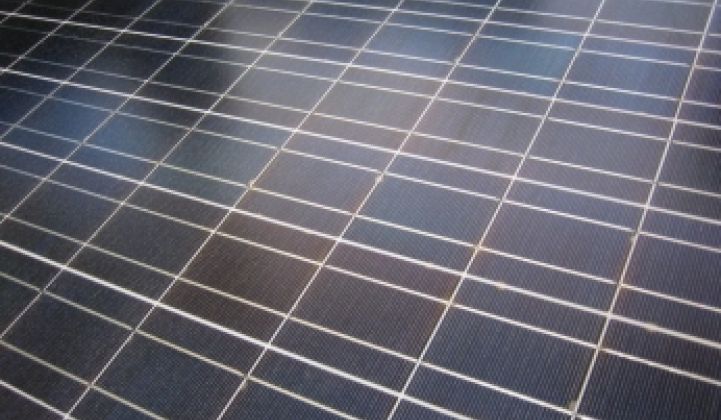Investors are showing a growing interest in solar startups working on solar-in-a-box.
The Quercus Trust and 21Ventures said Wednesday they have invested $2 million in Westford, Mass.-based GreenRay, which is pairing solar panels with microinverters it has designed to create AC solar panels. As far as we can tell at the moment, that makes 48 companies that have received funds from the secretive Quercus.
A typical solar energy system is made up of strings of panels and a central inverter that converts the direct current from the panels into alternating current for use onsite or feeding the grid.
Instead of using a centralized inverter that sits in a box or cabinet near the system, AC solar panels use miniature inverters attached to each panel to do the DC-to-AC conversion. To achieve the promised labor and cost reduction, those panels have inverters attached in the factory (as opposed to attaching the inverters right before or during installations).
Advocates say microinverters help to maximize the output of each panel, especially ones compromised by shade or debris.
But critics say microinverters aren't as reliable, and the failure of a few of them would cost a significant drop in a system's overall production.
Other companies that are developing AC solar panels include Akeena Solar in Los Gatos, Calif. Akeena is teaming up with microinverter developer Enphase Energy out of Petaluma, Calif.
Startup Armageddeon Energy is also releasing a do-it-yourself (or do-it-yourself with the help of local contractors) solar systems. Modular-ization of solar panels have a number of benefits, say advocates. By pre-packaging equipment, the time it takes to install a system is greatly reduced. But it also gives panel makers and others some breathing room from the relentless cost competition in solar. Pre-packaging allows manufacturers to begin to tout their products as solar appliances tailored for specific applications.
It can help the bottom line too. Barry Cinnamon, CEO of Akeena, says his company's all-in-one Andalay modules actually sell for a slight premium.
Modular-ization could also open the market for larger installers with nationwide reach. Cinnamon, GroSolar CEO Jeff Wolfe and others this week at Intersolar said it you can likely expect to see companies like Best Buy and Home Depot cranking up solar installation divisions.
For GreenRay, the A round would enable it to move to manufacturing and product launch, the company said. The company was founded in 2006 by former Schott Solar employees, according to its website.
GreenRay said it also has received roughly $3.5 million in grants and a loan from the federal and state governments.



